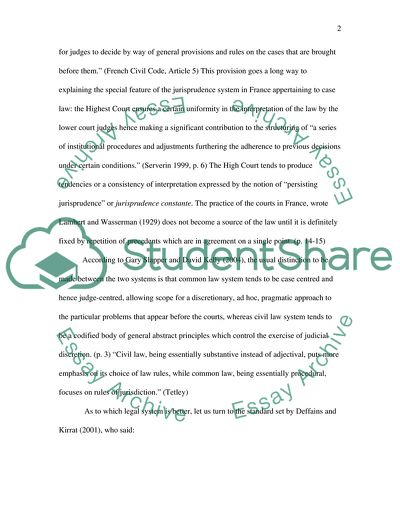Cite this document
(Common Law vs. Civil Law Essay Example | Topics and Well Written Essays - 1500 words, n.d.)
Common Law vs. Civil Law Essay Example | Topics and Well Written Essays - 1500 words. https://studentshare.org/law/1715741-compare-and-contrast-the-advantages-and-disadvantages-of-two-different-legal-systems
Common Law vs. Civil Law Essay Example | Topics and Well Written Essays - 1500 words. https://studentshare.org/law/1715741-compare-and-contrast-the-advantages-and-disadvantages-of-two-different-legal-systems
(Common Law Vs. Civil Law Essay Example | Topics and Well Written Essays - 1500 Words)
Common Law Vs. Civil Law Essay Example | Topics and Well Written Essays - 1500 Words. https://studentshare.org/law/1715741-compare-and-contrast-the-advantages-and-disadvantages-of-two-different-legal-systems.
Common Law Vs. Civil Law Essay Example | Topics and Well Written Essays - 1500 Words. https://studentshare.org/law/1715741-compare-and-contrast-the-advantages-and-disadvantages-of-two-different-legal-systems.
“Common Law Vs. Civil Law Essay Example | Topics and Well Written Essays - 1500 Words”. https://studentshare.org/law/1715741-compare-and-contrast-the-advantages-and-disadvantages-of-two-different-legal-systems.


